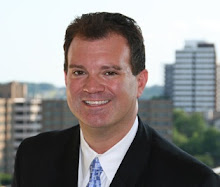I saw a spiritualist on cable talking about a year ago. He offered three spiritual principles that I wanted to share. Wish I could remember who it was. He said:
1. "You are not what you do."
My take:
Too many of us get so wrapped around our titles. What is good for the ego is not necessarily good for the spirit. I have a little technique that helps get people out of this mindset. Next time you meet someone, ask them: "What do you do?" Recognize that you are asking for an action verb, not a noun. Often people reply, "I'm a _____." They've responded to your query for a verb with a noun. This is self-limiting.
2. "You are not what you have."
My take:
People need to feel special about themselves. Sometimes we let materialism interfere with our ability to find inner self-worth. Do something meaningful. If an artifact represents an experience that created meaning in your life, that's a thing worth holding on to. Keep things that trigger memories and experiences: that is real value.
3. "You are not your reputation."
My take:
In the game of life, we often struggle to find purpose through our work reputations. That's fine, but don't let it become a negative force. Suicide is never the right answer. You can find new purpose even when others censure you. Let go of relations that harm the spirit and nurture those that vitalize and amplify your talents and values. Always represent yourself positively. You are perfect the way you are. If people do not appreciate you, find other people to work with.
Do not seek to find your passion. Live and work with passion.
April 27, 2010
Subscribe to:
Post Comments (Atom)

1 comment:
To play devil's advocate, I'd like to respond.
1) Unlike many other cultures, Americans tend to like what they do for a living and frequently choose their career. Their choice of profession does, to at least some extent, say something about what they are interested in and, I believe, it does reflects at least some of their values. I'd suggest that you aren't only what you do for a living, but you are at least partially. Also, what you "do" can be broader than just a profession--folks who are active in their community, religion, etc. also show, by actions, who they are. (Ok, the Christian faith generally promotes faith vs. works, but it doesn't mean that works don't count.) I had a friend who argued that her friend was working as a waitress but defined herself as an actress. Good for her, but at least by some external measures, she was a waitress.
2) Ok, by and large, yes, I agree that a person is not well-defined by their material possessions, but one's choice of which things to possess does result in perceptions of what others think of you. Folks with fancy cars and clothes are often defined by their things. We often judge others by their things.
3) The opposite of "you are not your reputation" is "perception is reality". How others perceive you does help define you. Some folks are resistant to social pressures to be defined by their reputation, but there are effects at work on the individual (like those very few people who are cyber-bullied and who consequently commit suicide). Children are often defined by their reputation. It might not be fair, but it does shape behavior.
In all three cases, what these statements suggest is that the individual, not society, is responsible for determining an individual's fate. And while we should encourage individuals to work towards that as a laudable goal, there are limits. Criminals, for example, would likely agree to all of the statements are much as would the poets and scientists. It doesn't make them right or wrong, but for criminal or particularly socio-pathic behavior, it is used as an excuse for not working within accepted societal norms.
In other words, I think that some norms are good. Not all, but some.
Thanks for the though-provoking piece.
Post a Comment